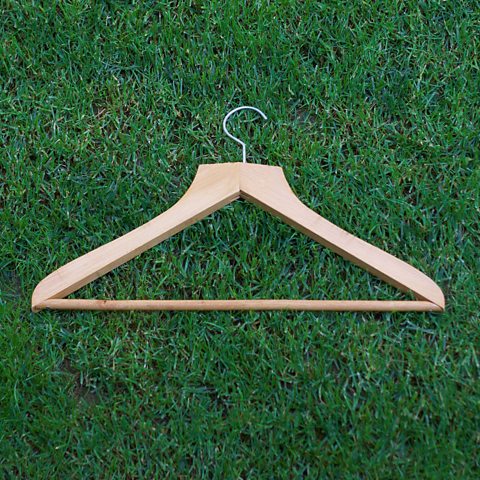Ever wish you had a bit more cash? Whether you rely on pocket money, a part-time or full-time job, sometimes what you earn or get isnŌĆÖt enough. ThatŌĆÖs why having a ŌĆśside-hustleŌĆÖ or hobby that gives you extra income has become a popular pastime.
Recently a lot more people have been wondering how they can boost their finances. One of the most popular ways is re-selling their unwanted clothes. Whether you have your sights set on joining them as a ŌĆśbedroom entrepreneurŌĆÖ or you simply want to find out more, weŌĆÖve spoken to the experts, both sellers and online marketplaces, to discover why second-hand clothing is such big business.

Why do people re-sell their clothes?

ŌĆ£IŌĆÖve always been interested in starting up my own online business to try and make some extra cash so I decided to start selling second-hand clothes,ŌĆØ says Spencer who opened his online shop two months ago. HeŌĆÖs one of 1 million sellers who use the platform Depop, which has 21 million registered users in over 147 countries. His menswear listings are part of the 25 million items of clothing that are currently for sale through the app but it isnŌĆÖt just the money that appeals to him, heŌĆÖs also keen to do his bit for the environment.
Most stores on platforms like Depop and Vinted sell ŌĆśwornŌĆÖ clothes, allowing them to be enjoyed again rather than thrown away. This is known as ŌĆścircular fashion.ŌĆÖ Clothes go around between different people so that they get the maximum use possible until they canŌĆÖt be worn any more. As Ianina Lucca, SVP Growth Marketing at Depop, explains: ŌĆ£The new generation isŌĆ” looking to make choices that reduce their impact on the environment, with 77% of Gen Z saying that their biggest environmental concern being that they want their choices to reduce waste.ŌĆØ As 90% of active Depop users are under the age of 26, sustainability could be a big draw for choosing vintage.
Maia got into selling her clothes online after it became a popular activity amongst her friends. She thinks: "Different people sell for different reasons, some want to start a business and some donŌĆÖt want to wear the same outfit twice.ŌĆØ
Some sellers also hunt around second-hand shops or markets to increase their stock. This requires investment as Spencer explains: ŌĆ£I started by selling my own clothes that I didnŌĆÖt wear but now I re-sell from charity shops. At this current point IŌĆÖve donated over ┬Ż200 to charity by buying stock.ŌĆØ


How much can you expect to earn re-selling online?

If, like a lot of sellers, you sell clothes owned by you, itŌĆÖs just the fees that youŌĆÖll need to think about. For example, eBay takes 10% of all final sales but waivers its listing fees for your first 1000 items each month (after which you're charged 35p per listing). Depop on the other hand doesnŌĆÖt have any listing fees but takes 10%. Preloved, an app with a focus on local selling, has no fees.
Platform fees havenŌĆÖt stopped people making money and, for some, re-selling has become a full-time career. There have been success stories, with Depop claiming its top sellers can make six-figure salaries annually. But earnings on this scale are rare; usually itŌĆÖs a more modest boost to your bank balance. The more good quality items you sell, the more money youŌĆÖre likely to make.
Maia says: ŌĆ£I think it depends on what youŌĆÖre selling. ItŌĆÖs likely youŌĆÖll earn more if youŌĆÖre selling something in high demand. The current trend is all about early 2000s pieces so you could charge more for those, however if youŌĆÖre selling your old pair of trainers that are falling apart, I wouldnŌĆÖt expect you to make profit.ŌĆØ
Zofisha identifies as an ŌĆ£alternative personŌĆØ and sells her unwanted clothes on eBay. Because she specialises in a distinct type of fashion, itŌĆÖs not to everyoneŌĆÖs taste but is tracked down by those who are looking for it. She said: ŌĆ£I havenŌĆÖt made much money recently because IŌĆÖve been neglecting my account while IŌĆÖve been busy doing assignments but IŌĆÖve got lots of photos saved up to be listed. I mostly sell things IŌĆÖm fed up of wearing. IŌĆÖll never forget the time I listed a couple of leather skirts, some gorgeous heels and boots and they sold within a week; that was the most I ever made in one single moment on eBay.ŌĆØ


Why is now a good time to re-sell online?

During the coronavirus pandemic, eBay UK reported that June 2020 saw the biggest year-on-year spike in new businesses joining the site, with an increase of 335% compared with June 2019. Fashion re-sale site Vinted, which has 30 million registered users across Europe, also saw a 17% increase in items listed on their platforms in the second quarter of 2020, which ties in with us being in lockdown. Natacha Blanchard from Vinted thinks the reason is ŌĆ£most likely connected to people spending more time at home and using it to declutter their wardrobe.ŌĆØ
In fact, since much of the population around the world have been spending more time at home, and while physical shops have been closed, turning to online shopping has helped a lot of people. In the UK in April, data from the Office for National Statistics indicates that there was a 30% increase in online sales as a percentage of overall sales in the UK, showing just how popular online shopping has become.
Retail platform Thred Up estimates that the second-hand fashion industry was worth $28 billion dollars (approx. ┬Ż21 billion) in 2019 and predict that, by 2024, this amount will more than double to $64 billion (approx. ┬Ż49 billion) ŌĆō so thereŌĆÖs certainly lots of opportunity out there for anyone considering re-selling their clothes.
ŌĆ£ThereŌĆÖs always been the notion of second-hand and resale, but itŌĆÖs gaining popularity now as you can do it at the touch of a button, all in the palm of your hand,ŌĆØ said Ianina, from Depop.
Ianina added: ŌĆ£If we look at resale today, versus tomorrow, itŌĆÖs clear it isnŌĆÖt just a trend: itŌĆÖs the future of fashion. The percentage of second-hand apparel in a personŌĆÖs closet is expected to double in the next 10 years and is on track to make up one-third of our wardrobes by 2033.ŌĆØ


We know re-selling makes money, but why is it also called sustainable fashion?

Every time new clothes are made, huge amounts of water and energy are required plus thereŌĆÖs a lot of waste. When we throw away our clothes that waste increases and weŌĆÖre running out of places to put it. Natacha from Vinted believes that shopping second-hand can help: ŌĆ£Our app helps extend the lifecycle of clothes.ŌĆØ
Natacha's thoughts are echoed by Ianina from Depop, who adds: ŌĆ£We know that if everyone bought second-hand instead of new for one year, we would save 25 billion gallons of water. Also, buying second-hand extends its life by more than two years on average, and reduces its environment footprint by 73%.ŌĆØ


The future is second-hand
ThereŌĆÖs little doubt that buying and selling second-hand clothes will continue to appeal, especially when it has benefits for people and the environment.
If youŌĆÖre feeling inspired to re-sell your clothes online, check out the article opposite for some top tips from a pro seller.
Remember there are lots of different places to get started. As well as Depop, Vinted, and eBay, platforms like Gumtree, Preloved and Facebook Marketplace are aimed at people collecting their shopping in person rather than posting items, so research them all first to find the best one for you.
From car boot sale to online fashion success: TŌĆÖs story video
Looking to make money selling clothes online? Check out professional seller, T's, advice for making your mark.


Sir Richard BransonŌĆÖs secrets to success. video
Top tips from Sir Richard Branson.

Ask Jackie Fast: What makes a successful entrepreneur?
Ex-Apprentice candidate Jackie Fast explains what makes a successful entrepreneur.

Growth mindset: An entrepreneur's best friend
A growth mindset is what will take you from zero to hero in your business ventures. But what is it and how can you develop yours?
